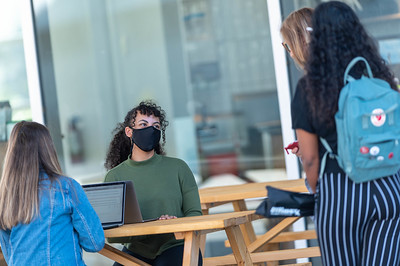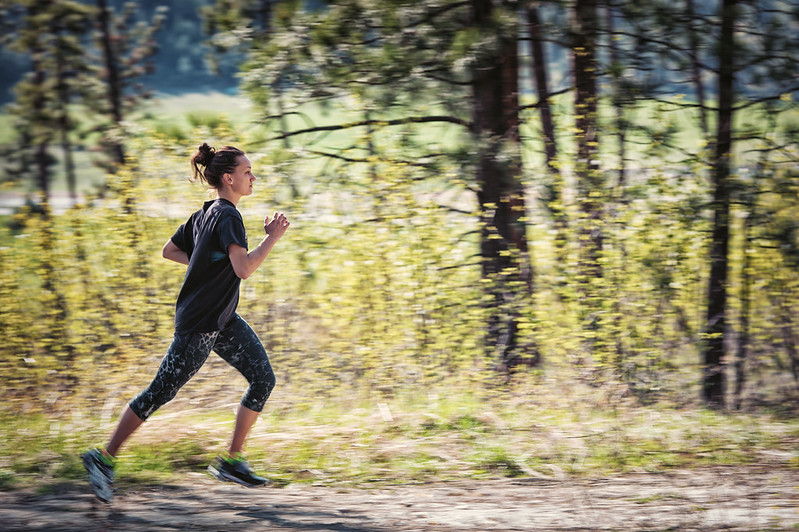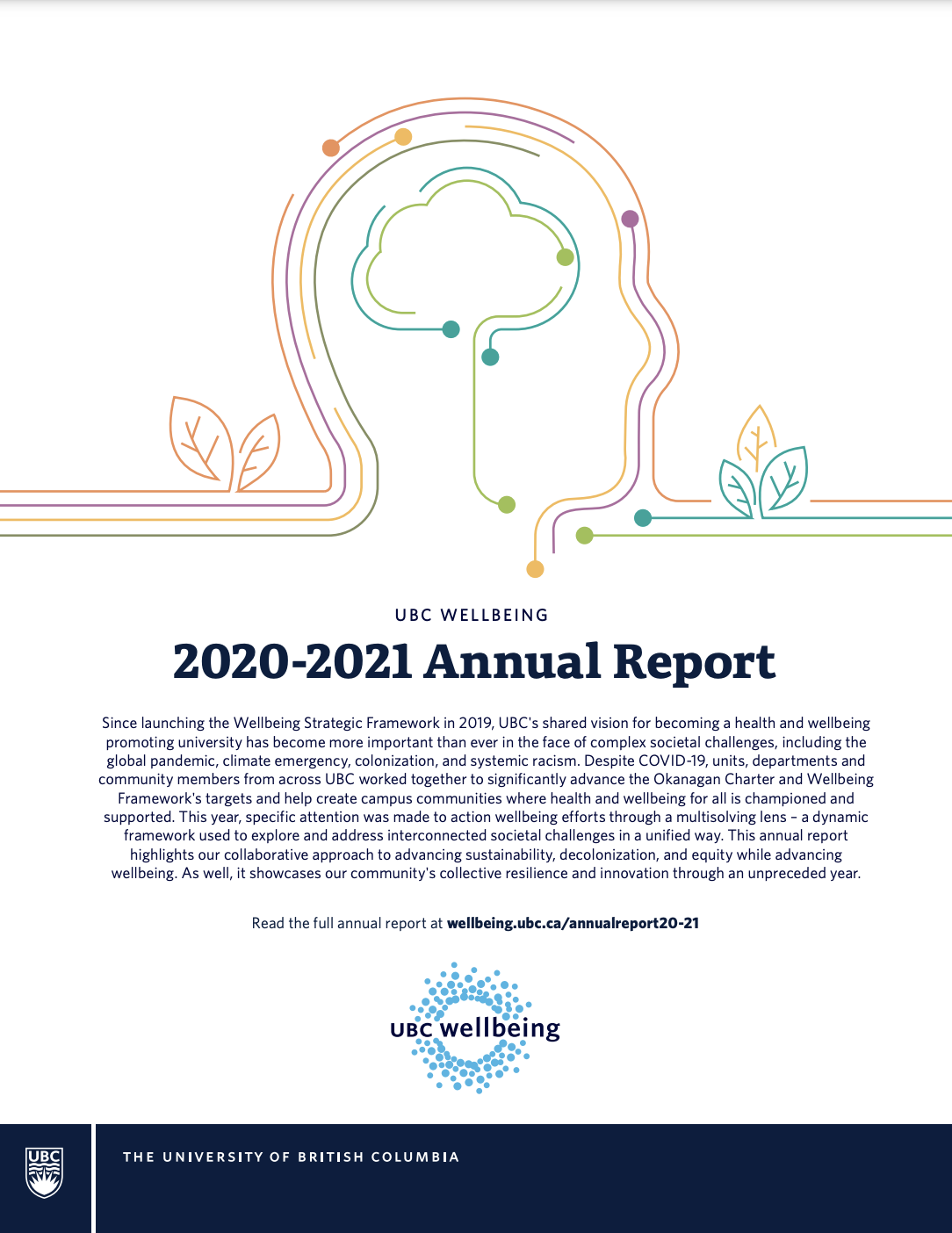Since launching the Wellbeing Strategic Framework (WSF) in 2019, UBC's shared vision for becoming a health and wellbeing promoting university has become more important than ever in the face of complex societal challenges, including the global pandemic, climate emergency, colonization, and systemic racism.
Despite COVID-19, units, departments and community members from across UBC worked together to significantly advance the Okanagan Charter and Wellbeing Framework's targets and help create campus communities where health and wellbeing for all is championed and supported.
This year, specific attention was made to action wellbeing efforts through a multisolving lens – a dynamic framework used to explore and address interconnected societal challenges in a unified way.
This annual report highlights our collaborative approach to advancing sustainability, decolonization, and equity while advancing wellbeing. As well, it showcases our community's collective resilience and innovation through an unprecedented year.
Scroll down to view WSF target metrics and stories in the dropdown menus, or check out highlights in the UBC Wellbeing Annual Report 2020-21 Infographic.
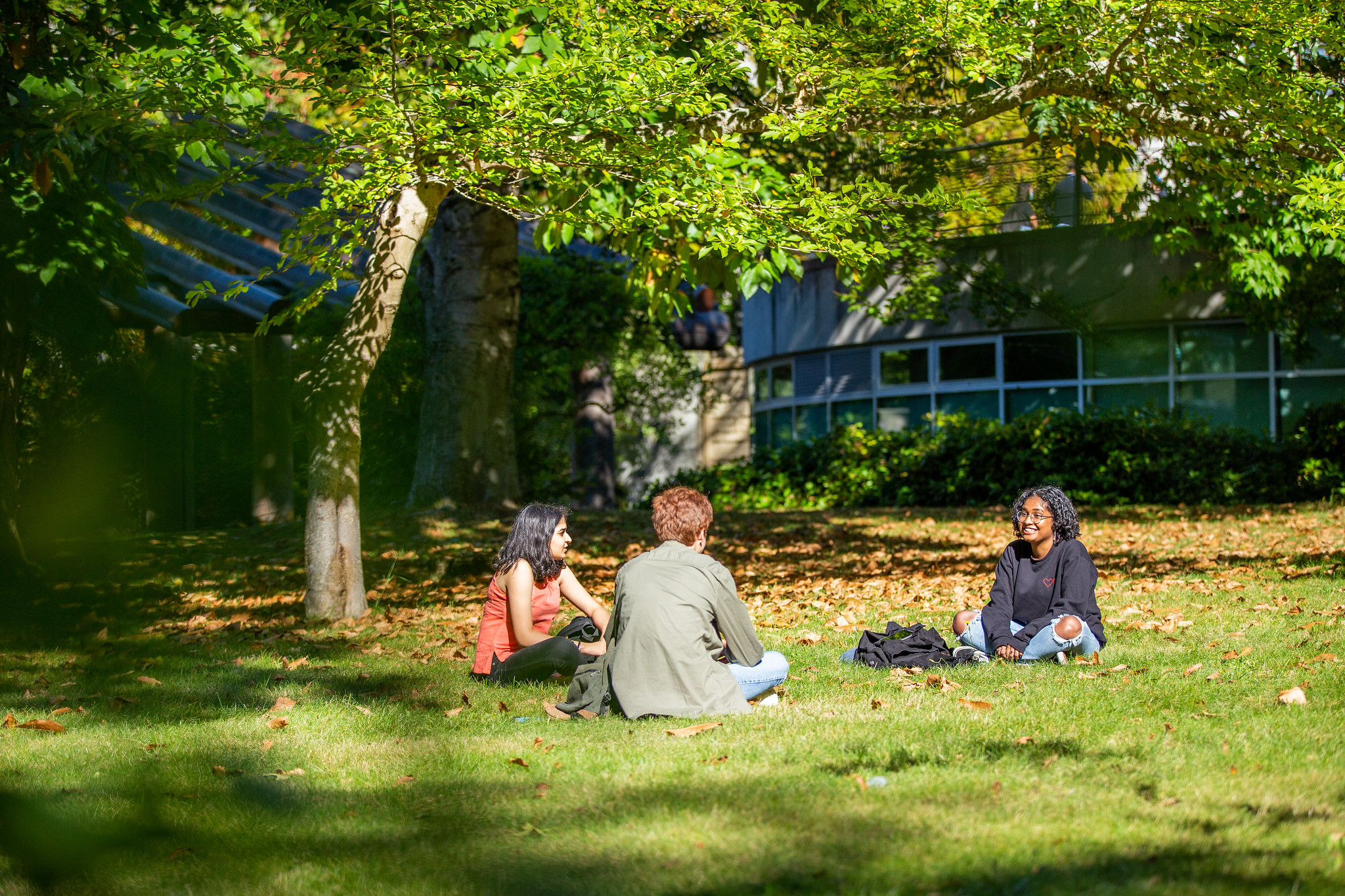
Mental Health & Resilience
![]()
UBC Cares
10% increase in community members who feel mental health is a UBC priority by 2025*.
*2025 target in development
Metrics
Measure
At UBC, I feel that student, staff and faculty mental and emotional wellbeing is a priority*
UBC Vancouver
| Population | Data | Change from Baseline (B) |
| Undergraduate Students | 20% | -9% (decline) |
| Graduate Students | 30% | -6% (decline) |
| Staff and Faculty combined | 41% | B |
| Staff | 44% | B |
| Faculty | 29% | B |
UBC Okanagan
| Population | Data | Change from Baseline (B) |
| Undergraduate Students | 28% | -17% (decline) |
| Graduate Students | 39% | -14% (decline) |
| Staff and Faculty combined | 48% | B |
| Staff | 53% | B |
| Faculty | 25% | B |
* % who strongly agree or agree
![]()
Mental Health Literacy
10% increase in community members reporting access to opportunities to develop mental health literacy by 2025.
Metrics
Measure
I know how to access benefits, services and programs that support my health and wellbeing*
UBC Vancouver
| Population | Data | Change from Baseline (B) |
| Staff and Faculty combined | 80% | B |
| Staff | 82% | B |
| Faculty | 69% | B |
UBC Okanagan
| Population | Data | Change from Baseline (B) |
| Staff and Faculty combined | 79% | B |
| Staff | 84% | B |
| Faculty | 68% | B |
Measure
If I needed to seek professional help for my mental or emotional health, I would know how to access resources (online or in-person) provided through my employer*
UBC Vancouver
| Population | Data | Change from Baseline (B) |
| Staff and faculty combined | 68% | B |
| Staff | 72% | B |
| Faculty | 57% | B |
UBC Okanagan
| Population | Data | Change from Baseline (B) |
| Staff and Faculty combined | 70% | B |
| Staff | 71% | B |
| Faculty | 66% | B |
Measure
If I needed to seek professional help for my mental or emotional health, I would know where to access campus-based resources (online or in-person)*
UBC Vancouver
| Population | Data | Change from Baseline (B) |
| Undergraduate Students | 34% | -2% (decline) |
| Graduate Students | 43% | +1% (improvement) |
UBC Okanagan
| Population | Data | Change from Baseline (B) |
| Undergraduate Students | 38% | -10% (decline) |
| Graduate Students | 47% | -3% (decline) |
Measure
If I needed to seek professional help for my mental or emotional health, I would know where to go for services not offered through my employer*
UBC Vancouver
| Population | Data | Change from Baseline (B) |
| Staff and Faculty combined | 57% | B |
| Staff | 58% | B |
| Faculty | 53% | B |
UBC Okanagan
| Population | Data | Change from Baseline (B) |
| Staff and Faculty combined | 57% | B |
| Staff | 59% | B |
| Faculty | 51% | B |
Measure
If I needed to seek professional help for my mental or emotional health, I would know where to go off campus*
UBC Vancouver
| Population | Data | Change from Baseline (B) |
| Undergraduate Students | 31% | +4% (improvement) |
| Graduate Students | 37% | +5% (improvement) |
UBC Okanagan
| Population | Data | Change from Baseline (B) |
| Undergraduate Students | 37% | +8% (improvement) |
| Graduate Students | 42% | +2% (improvement) |
Measure
In general, how would you rate your ability to handle day-to-day demands in your life?*
UBC Vancouver
| Population | Data | Change from Baseline (B) |
| Undergraduate Students | 29% | B |
| Graduate Students | 35% | B |
| Staff and Faculty combined | 43% | B |
| Staff | 43% | B |
| Faculty | 43% | B |
UBC Okanagan
| Population | Data | Change from Baseline (B) |
| Undergraduate Students | 32% | B |
| Graduate Students | 37% | B |
| Staff and Faculty combined | 43% | B |
| Staff | 40% | B |
| Faculty | 56% | B |
Measure
The UBC campus climate encourages free and open discussion about mental and emotional health*
UBC Vancouver
| Population | Data | Change from Baseline (B) |
| Undergraduate Students | 37% | -10% (decline) |
| Graduate Students | 41% | -4% (decline) |
| Staff and Faculty combined | 40% | B |
| Staff | 42% | B |
| Faculty | 30% | B |
UBC Okanagan
| Population | Data | Change from Baseline (B) |
| Undergraduate Students | 46% | -13% (decline) |
| Graduate Students | 45% | -10% (decline) |
| Staff and Faculty combined | 47% | B |
| Staff | 51% | B |
| Faculty | 34% | B |
* % who strongly agree or agree
Mental Health & Resilience Highlights
Thrive Mental Health Campaign Moves Online
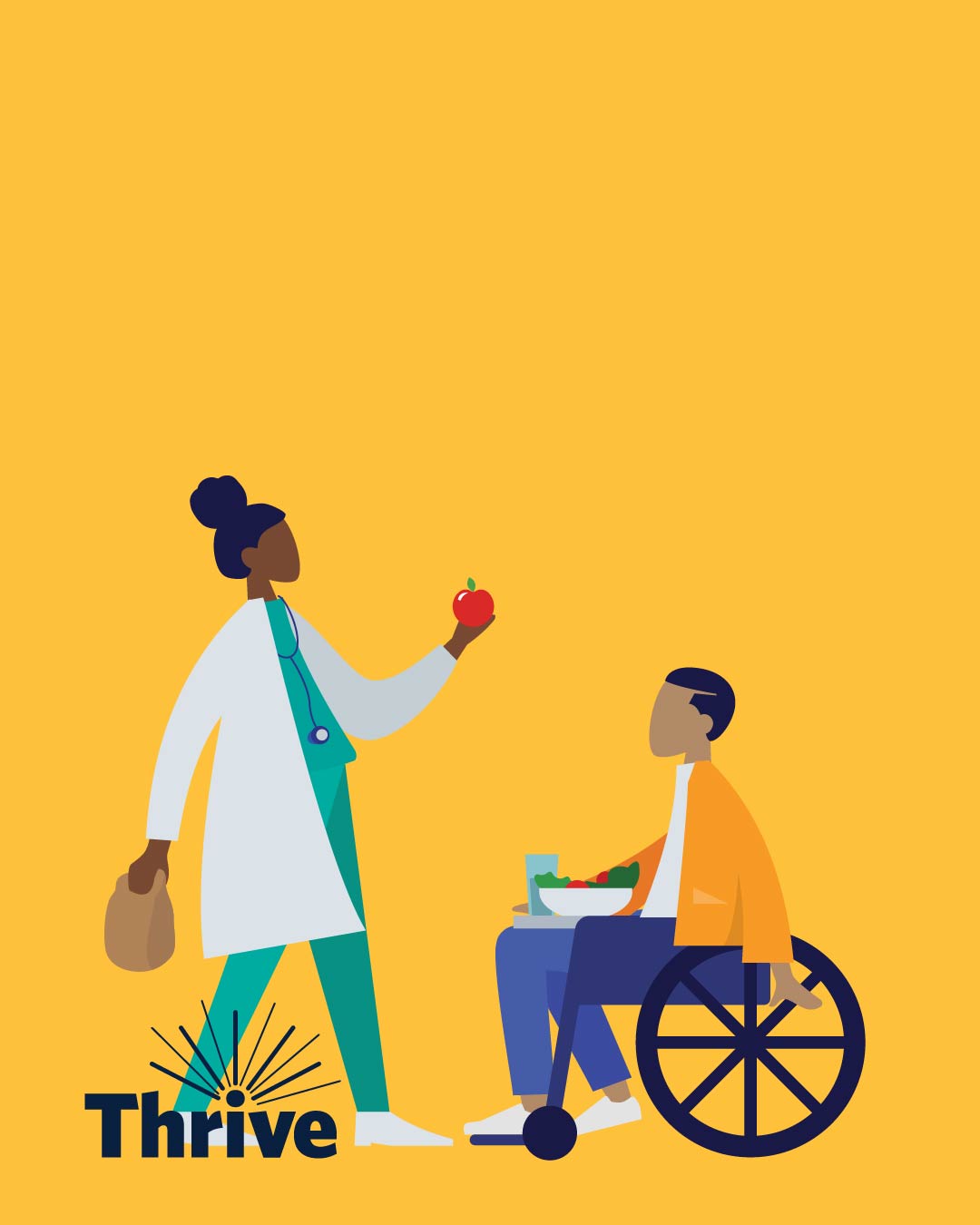
While fostering and maintaining mental health is a year-round pursuit, Thrive is a time each November for the UBC community to come together to learn about, talk about, and explore ways to support mental health. In response to the pandemic, the annual initiative went virtual with 199 events, ensuring our community had the support needed to build mental health literacy while living, learning and working from home.
This past year, events focused on aspects of mental health literacy using the Thrive 5 such as help-seeking, stigma-reduction and diverse perspectives on mental health and additionally addressed the systemic and structural factors that impact the community.
New Resource: Intersectional Approaches to Mental Health
With the rapid switch to remote work, paired with increased levels of anxiety and mental health challenges in response to COVID-19 uncertainty, the Workplace Wellbeing team adapted quickly to support the mental health of the staff and faculty community, including the development of a new resource: “Intersectional Approaches to Mental Health - A Facilitator’s Guide”. This guide offers an intersectional approach to support mental health literacy and capacity building from a place of inclusion and diversity.
Learn more about this resource
Mental Health & Resilience Committee Launches
The Mental Health and Resilience Committee reconvened in November 2020 with diverse representation from across UBC Vancouver and Okanagan campuses, including students, faculty, staff, and senior leaders, to focus on advocacy and systems-level change.
The committee developed three milestones, with working groups, towards achieving the 2025 targets in the Wellbeing Strategic Framework, including 1. Mental health literacy training for managers and leaders, 2. Engagement strategies in collaboration with affinity groups, and 3. Mental health literacy, fluency, and capacity for students and staff/faculty across both campuses.
Okanagan’s Thriving Workplaces Micro Fund Extends Thrive Year-Round
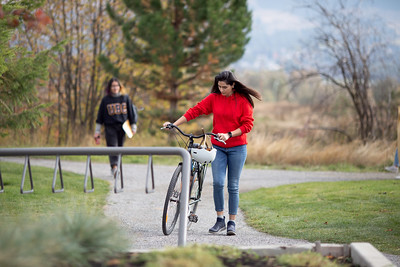
The UBC Okanagan Workplace Health and Wellbeing team implemented a Thriving Workplaces micro fund to promote workplace wellbeing and to equip units and departments to create and maintain health and wellbeing practices.
The fund, which was implemented during Thrive and again in February 2021, invited units and departments to apply for up to $500 in support activities that reflected the Thrive 5+ themes.
From across the Okanagan campus, 15 units and departments received funds, reaching 195 employees through team cooking classes, scavenger hunts, art and crafting projects, and health-promoting fun challenges to support social connection and resilience in the workplace.
Peer Health Educator Program Launches
The Peer Health Educator Program launched to help improve the UBC student experience and support students in building valuable leadership skills. Peer Health Educators are trained student leaders who play a key role in the delivery of programming at the UBC Wellness Centre and on the UBC Vancouver campus.
Using a peer-to-peer approach, Peer Health Educators share evidence-based health and wellness information through on-campus outreach and education in the form of workshops, booths, events, and campaigns.
During 2020/21, 69 presentations were booked by campus partners for the new Peer Health Educator program with session themes including grounding exercises, managing stress, getting a good night’s sleep, and connecting with others.
Building Mentally Healthy Workplaces: Not Myself Today
Since 2015, UBC has partnered with the Canadian Mental Health Association’s Not Myself Today (NMT) workplace mental health initiative. NMT provides UBC employees with access to a digital portal that includes downloadable resources, evidence-informed activities and tools to help create opportunities for safe and supportive workplace dialogue and raise awareness and understanding of the importance of fostering mental health in the workplace.
Due to the shift to remote work, as well as concerns related to the mental health impacts of COVID-19 on employees, NMT uptake increased in 2020 by 38% compared to 2019, with a total of 43 unique cross-campus departments utilizing NMT to support mental health in the workplace.
Wellness Centre Empowers Learners Online
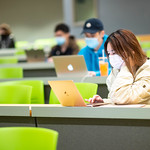
This past year, the Wellness Centre moved a substantial number of previously in-person health education and health literacy resources online via Canvas through the Wellness Centre: Online. The Canvas course was developed at both UBC Vancouver and Okanagan campuses, with the Vancouver course reaching up to 2,500 students by the end of the academic year.
In addition, other mental health training programs including Jump Start Orientation, Question, Persuade, Refer (QPR), and Academic Essentials: Live Well to Learn Well went virtual to continue supporting student, faculty, and staff mental health capacity building from the safety of our homes.
Workplace Wellbeing Enhances Faculty and Staff Supports
With the rapid switch to remote work, paired with increased levels of anxiety and mental health challenges in response to COVID-19 uncertainty, the Workplace Wellbeing team needed to act in fast-paced and innovative ways to support the mental health of the staff and faculty community.
While adapting a full suite of existing in-person offerings for virtual delivery presented some challenges, it also allowed for the development of new and innovative education and engagement strategies. These included the creation of three self-directed/self-paced learning opportunities on Overcoming Burnout with 574 registrants, Self-care and Community-care with 562 registrants, and Wellbeing in the Workplace with 146 registrants.
Remote programming was open to both UBC Vancouver and UBC Okanagan employees and content was adapted to reflect the diversity and intersectional nature of UBC’s staff and faculty population.
The content was specifically targeted towards managers and leaders – building capacity and enabling them to support the wellbeing and mental health of a shifting and remote workforce.
This adaptability and willingness to try new things enabled the team to deliver 61 virtual mental health workshops and training programs to reach close to 1,614 participants.
Learn more about Workplace Health, Wellbeing and Benefits at UBC Vancouver
Learn more about Workplace Health and Wellbeing at UBC Okanagan
Cross-Campus Collaboration Champions Mental Health Supports
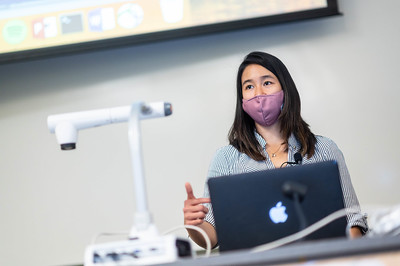
UBC Okanagan Workplace Health and Wellbeing Services and UBC Vancouver Workplace Health, Wellbeing and Benefits teams worked together to ensure faculty and staff had access to resources and opportunities in light of the pandemic and remote working conditions. This strategic alignment enhanced the accessibility and profile of programs, resources, and initiatives to promote faculty and staff health and wellbeing.
Learn more about UBCO Workplace Health and Wellbeing
Learn more about UBCV Workplace Health, Wellbeing and Benefits
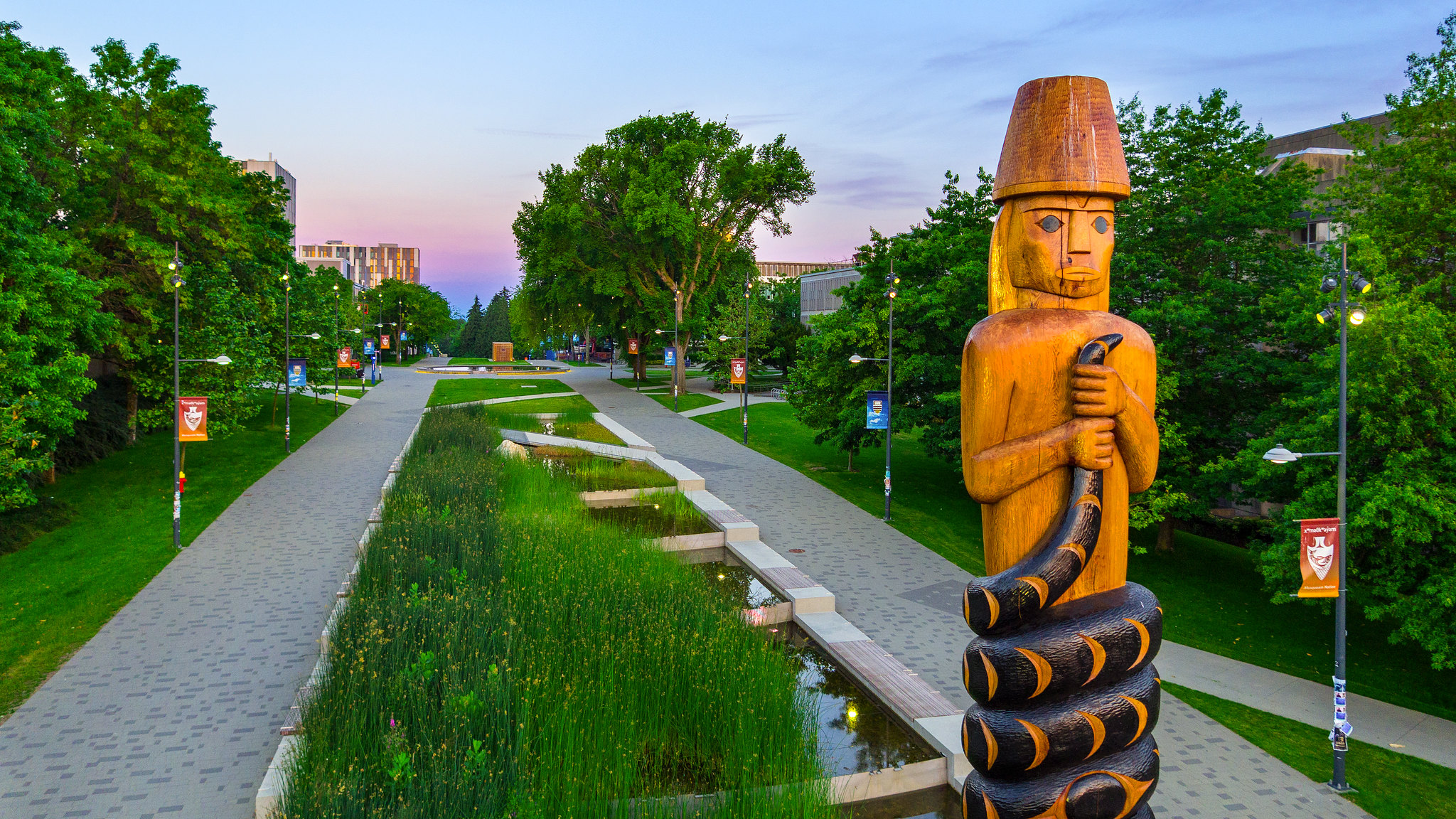
Collaborative Leadership
![]()
UBC is committed to Wellbeing
Community members feel UBC is committed to the wellbeing of its people, places, and communities.
2025 target in development
Metrics
Measure
% of students, staff, and faculty who agree or strongly agree that UBC is committed to the wellbeing of its people, places, and communities
UBC Vancouver
| Population | Data | Change from Baseline (B) |
| Undergraduate Students | 31% | -13% (decline) |
UBC Okanagan
| Population | Data | Change from Baseline (B) |
| Undergraduate Students | 41% | -18% (decline) |
![]()
All Faculties & Units Take Action
All faculties and units have included wellbeing in their plan and report on progress annually by 2025.
Metrics
Measure
# of faculties and units
Data collection in progress
Collaborative Leadership Highlights
Wellbeing Champions Provide Campus-wide Support
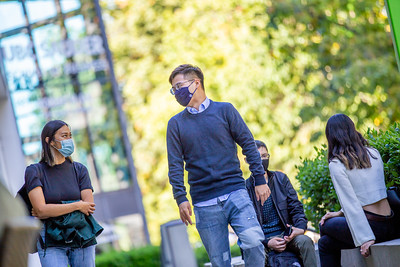
At UBC, wellbeing is foundational to our success as individuals, as a university, and as a community, and our students, faculty and staff are great champions when it comes to creating an environment that supports wellbeing for all.
Our vision of becoming a health and wellbeing-promoting campus is one we are approaching collectively and collaboratively, supported by passionate Wellbeing Champions—students, faculty, and staff who are committed to helping UBC achieve this vision by helping to embed and promote wellbeing in their workplaces, learning environments, and portfolios.
Over 50 Workplace Wellbeing Ambassadors, Wellbeing Liaisons, and more than 30 Graduate Student Wellbeing Ambassadors from across Vancouver and Okanagan campuses helped their fellow students, faculty and staff this year through various forms of support and outlets.
Leveraging the Charter to Find Solutions to Complex Societal Issues
Leveraging the Charter was an international, multi-solving event, co-hosted with McGill, Waterloo, and the Canadian Public Health Network to strengthen the understanding of the Okanagan Charter and explore challenges exacerbated by the pandemic.
Through a multisolving lens to find “solutions to the interconnected problems facing the climate and human society,” over 250 participants helped tackle issues of health and wellbeing in the context of the pandemic, systemic racism, and climate emergency crisis.
Human Resources Pivots to Implement Courses Online
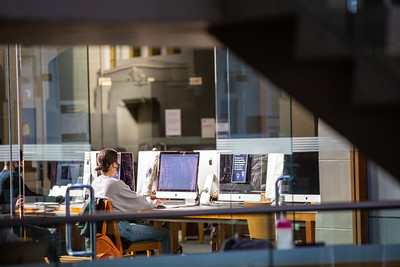
In December 2020, a new online Canvas module and 2.5 hour workshop was created and facilitated for the Central Human Resource’s Managing at UBC program called Leading Well: Supporting Mental Health and Resilience in the Workplace.
This program was successfully completed by 65 managers, helping them gain essential leadership skills and foundational tools to succeed and grow while strengthening their understanding of mental health, psychological health, and safety in the workplace.
UBC Climate Emergency Task Force Releases Recommendations

In January 2021, the UBC Climate Emergency Engagement Final Report and Recommendations was released, including strategic priorities related to the intersections of climate justice and wellbeing, core principles of the Okanagan Charter, and UC3 and UBC strategic plans. More specifically initiatives to support community wellbeing in the face of the climate crisis, expanding educational resources, developing new partnerships, accelerating emissions reductions, fostering a culture of advocacy, and ensuring Indigenous perspectives shape climate initiatives and policies were discussed and explored.
These recommendations led to the development of a student-led Climate Wellbeing Engagement Network, with next steps to embed climate resources in existing mental health workshops and wellbeing newsletters.
Learn more about the UBC Climate Emergency Engagement Final Report
Embedding Wellbeing in Learning Environments
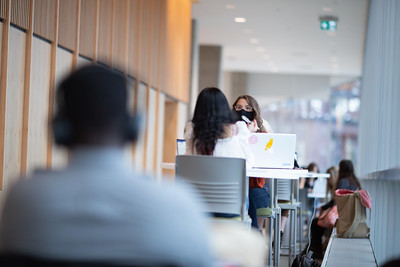
Wellbeing in Learning Environments continued to expand on the Okanagan campus with phase two of the “TEACHERS Project”. This project aims to equip and support faculty with simple, evidence-based wellbeing interventions to embed into classrooms to facilitate student wellbeing. Results of the project were overwhelmingly positive for improved student engagement, focus, connection to their professor, feelings of sense of community, affect, and that their wellbeing was supported.
In addition, HEAL 100 ~ Introduction and Principles of Health and Wellbeing, is being offered in both fall and winter terms due to its high demand (online in the fall term), now open to UBC Vancouver students as well. Another highlight was that Campus Health collaborated with student leaders to host an inspirational “Golden Apple Award” ceremony which celebrated student nominated faculty who are excellently promoting wellbeing in the classroom.
Incorporating Wellbeing and Change within Land and Food Systems

In January 2020, Central HR’s Workplace Wellbeing and Change and Transition teams partnered on an innovative two-year pilot project with the Faculty of Land and Food Systems (LFS) leadership team to strengthen the capacity of LFS staff, faculty and teams to navigate change and support wellbeing.
Some key outcomes from 2020-21 include establishing collaborative connection points to discuss wellbeing, developing and implementing a change and wellbeing survey tool, delivering 6 faculty-wide workshops focused on change and wellbeing topics, embedding change and wellbeing language in strategic plans, key resources and communications channels, organizing 1 strategic planning and reflection workshop, and leading 1 workshop for LFS leaders focused on psychologically healthy and safe leadership practices.
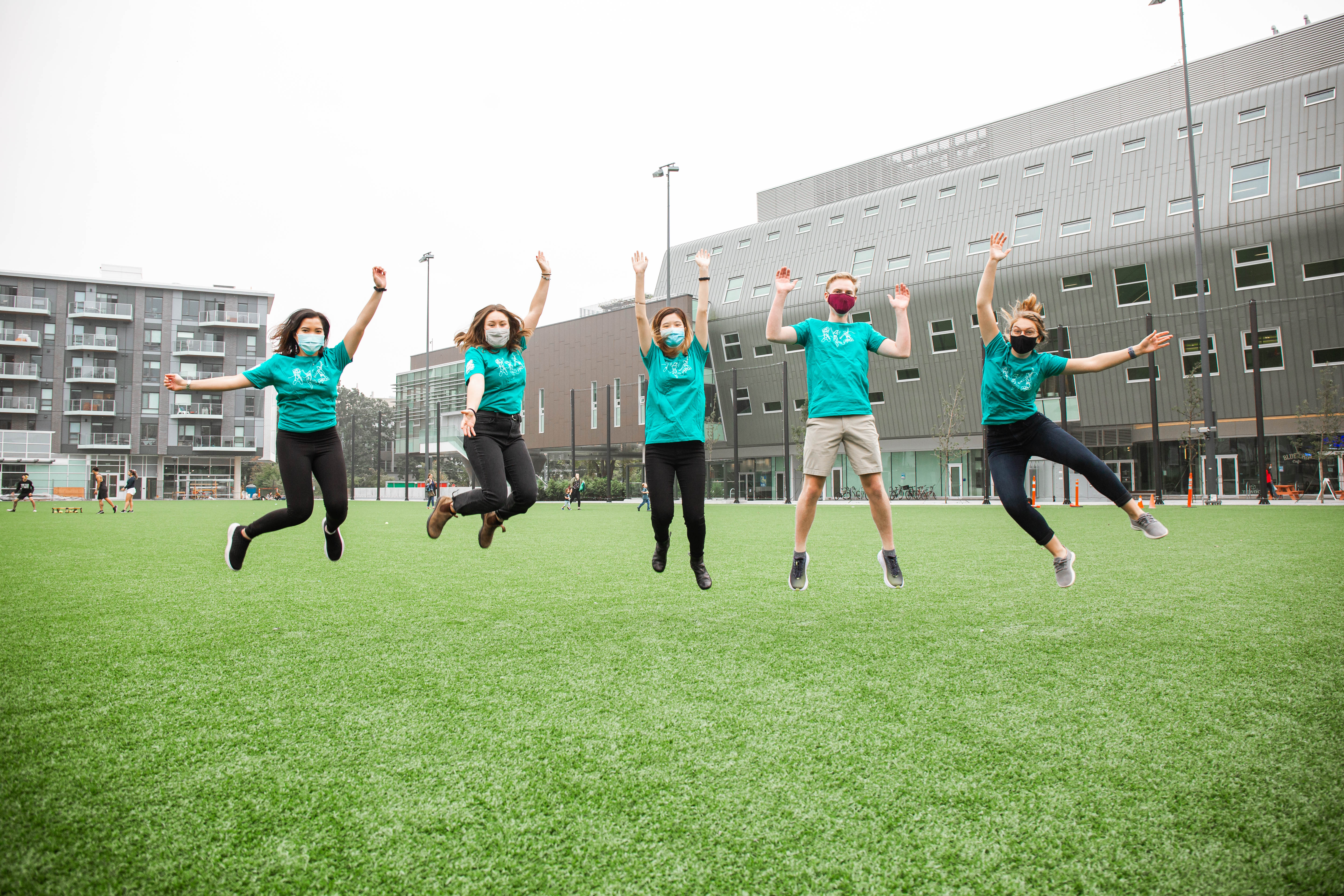
Physical Activity
![]()
Move More
10% reduction in the prevalence of physical inactivity for UBC community members by 2025.
Metrics
Measure
% of students, staff, and faculty who report not meeting the Canadian physical activity guidelines.
UBC Vancouver
| Population | Data | Change from baseline (B) |
| Undergraduate Students | 39% | -6% (improvement) |
| Graduate Students | 35% | -2% (improvement) |
| Staff and Faculty combined | 26% | B |
| Staff | 28% | B |
| Faculty | 20% | B |
UBC Okanagan
| Population | Data | Change from baseline (B) |
| Undergraduate Students | 31% | -7% (improvement) |
| Graduate Students | 30% | -10% (improvement) |
| Staff and Faculty combined | 23% | B |
| Staff | 21% | B |
| Faculty | 19% | B |
![]()
Diverse Community, Diverse Programming
10% increase in UBC community members' satisfaction with recreation facilities and programs by 2025.
Metrics
Measure
How satisfied are you with the availability of recreation programs on campus?*
UBC Vancouver
| Population | Data | Change from baseline (B) |
| Undergraduate Students | 48% | B |
UBC Okanagan
| Population | Data | Change from baseline (B) |
| Undergraduate Students | 33% | B |
Measure
How satisfied are you with the quality of recreation programs on campus?*
UBC Vancouver
| Population | Data | Change from baseline (B) |
| Undergraduate Students | 48% | B |
UBC Okanagan
| Population | Data | Change from baseline (B) |
| Undergraduate Students | 34% | B |
Measure
How satisfied are you with the quality of recreation facilities on campus?*
UBC Vancouver
| Population | Data | Change from baseline (B) |
| Undergraduate Students | 46% | B |
UBC Okanagan
| Population | Data | Change from baseline (B) |
| Undergraduate Students | 30% | B |
*% who are very satisfied or satisfied
Physical Activity Highlights
Moving More and From Anywhere
The Office of Physical Activity, established by UBC Kinesiology, UBC Wellbeing, and UBC Recreation in 2017, shifted programming online and continues to engage and inspire students, faculty, and staff through physical activity during the pandemic.
They expanded virtual programming, bringing movement to the UBC community everywhere and anywhere. Get Active at Home, Lunch & Lift, Lift Challenge, Walk for Joy, Move UBC, Instagram Movement Breaks with +26,500 views, and Sports Week with +600 participants, were all initiatives geared towards meeting the needs of the UBC community and bringing physical activity to individuals through reducing barriers such as cost, transportation, and time.
Inclusive Physical Activity Toolkit Launched
The Inclusive Physical Activity Toolkit was designed to support inclusive physical activity across both UBC Vancouver and UBC Okanagan campuses. Created by the Physical Activity Committee comprised of students, faculty, and staff members from both UBC campuses, the toolkit can be used as a guiding document for promoting, planning and advocating for inclusive physical activity within your own context.
Diverse Community, Diverse Programming
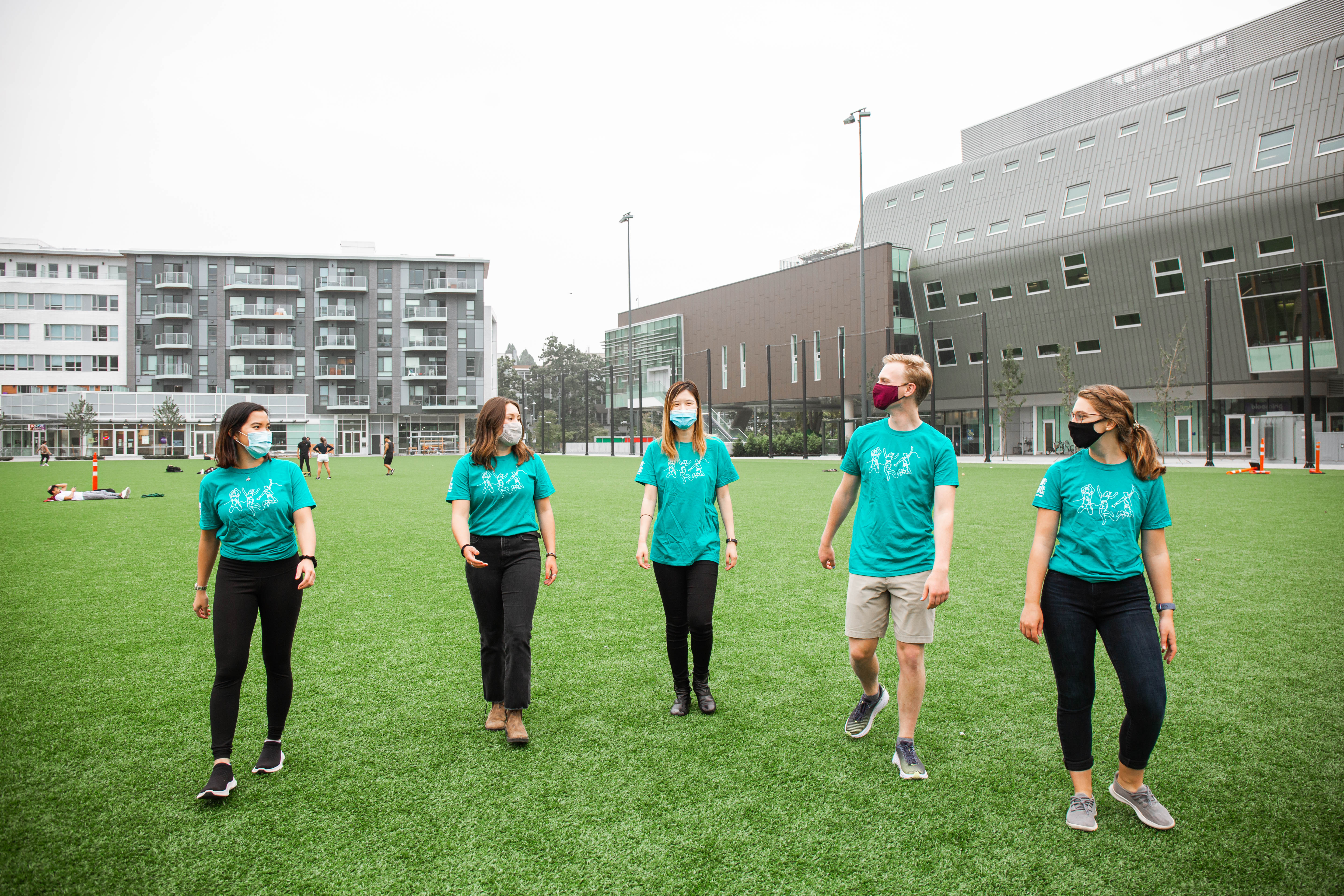
Diversity, equity, and inclusion remain at the forefront of planning processes, policies, and programs for the Office of Physical Activity. Guided by the Equity and Inclusion Office’s new Inclusion Action Plan, their office strives to reach the second physical activity target of “Diverse Community, Diverse Programming” in hopes to see a 10% increase in UBC community members’ satisfaction with recreation facilities and programs by 2025.
The Office of Physical Activity partners with various associations, clubs, and organizations to meet the needs of our diverse population. This year’s highlights included a BIPOC Lunch & Lift, Graduate Student Society virtual classes, and a growing partnership with the Sexual Violence Prevention & Response Office to host an Online Healing Centered Yoga class for survivors and allies to also create safe spaces for physical activity.
Actioning Reconciliation within Physical Activity
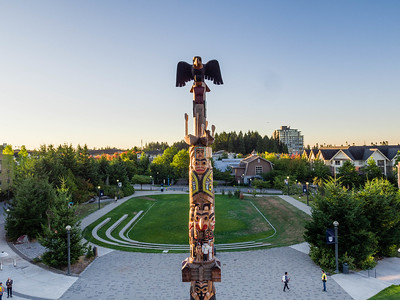
The Office of Physical Activity strives to create inclusive, equitable and accessible physical activity experiences for all, which remains especially true for Indigenous communities at UBC. In response to the Truth and Reconciliation Commission of Canada (TRC) Calls to Action, and BC’s adoption of the UN Declaration on the Rights of Indigenous Peoples (UNDRIP), the office has committed to actioning reconciliation and decolonization through its programming and practice.
From aligning efforts with the new Indigenous Strategic Plan to hiring an Indigenous Wellbeing Research Assistant to incorporate Indigenous worldview in recruitment and curriculum development, the Office of Physical Activity is striving to ensure their work is Indigenous informed and Indigenous lead.
Other initiatives included Musqueam Walks, a virtual walking challenge in partnership with Musqueam Community Centre, and Decolonizing Physical Activity & Sport Panel, Move UBC’s feature event exploring how to decolonize physical activity and sport spaces to help create safe environments across campuses.
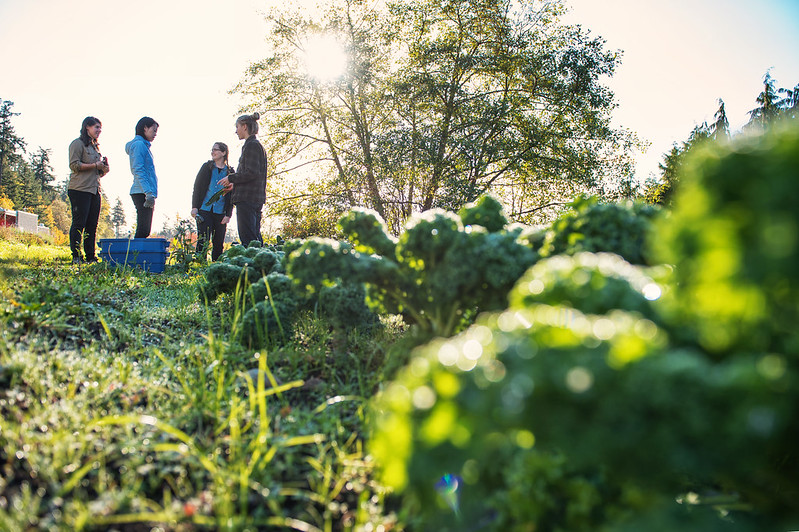
Food & Nutrition
![]()
Increase Food Security
Reduce food insecurity for UBC community members by 2025.
Target in development
Metrics
Measure
% of population reporting food insecurity
UBC Vancouver
| Population | Data | Change from baseline (B) |
| Undergraduate Students | 13% | -24% (improvement) |
| Graduate Students | 20% | -22% (improvement) |
| Staff and Faculty combined | 5% | B |
| Staff | 6.25% | B |
| Faculty | 2% | B |
UBC Okanagan
| Population | Data | Change from baseline (B) |
| Undergraduate Students | 13% | -16% (improvement) |
| Graduate Students | 23% | -19% (improvement) |
| Staff and Faculty combined | 8% | B |
| Staff | 9.52% | B |
| Faculty | 0% | B |
![]()
Healthy Beverage Consumption
50% reduction in sugar-sweetened beverage consumption on our campuses by 2025.
Metrics
Measure
% of sugar-sweetened beverages sales
UBC Vancouver
| Location | Data | Change from baseline (B) |
| Food Services & Athletics/Rec | 32% | B (No 2021 data - COVID) |
| AMS | 68% | B (No 2021 data - COVID) |
UBC Okanagan
| Location | Data | Change from baseline (B) |
| TBD | TBD | TBD |
Measure
% of sugar-sweetened beverage availability in vending
UBC Vancouver
| Campus | Data | Change from baseline (B) |
| Vancouver | 25% | -1% (improvement) |
UBC Okanagan
| Campus | Data | Change from baseline (B) |
| Okanagan | 21% | -10% (improvement) |
Measure
# outlets with no sugar-sweetened beverages (SSB)
UBC Vancouver
| Location | Data | Change from baseline (B) |
| Food Services, SHCS, & Athletics/Rec | 2 | +2 (improvement) |
| AMS | 0 | B |
UBC Okanagan
| Location | Data | Change from baseline (B) |
Food Services, SHCS, | 1 of 3 | +1 (improvement) |
Measure
% buildings that have at least one tap water fixture with bottle filling capacity
UBC Vancouver
| Campus | Data | Change from baseline (B) |
| Vancouver | 91% | B |
UBC Okanagan
| Campus | Data | Change from baseline (B) |
| Okanagan | 100% | B |
Food & Nutrition Highlights
Addressing Heightened Food Insecurity During COVID-19
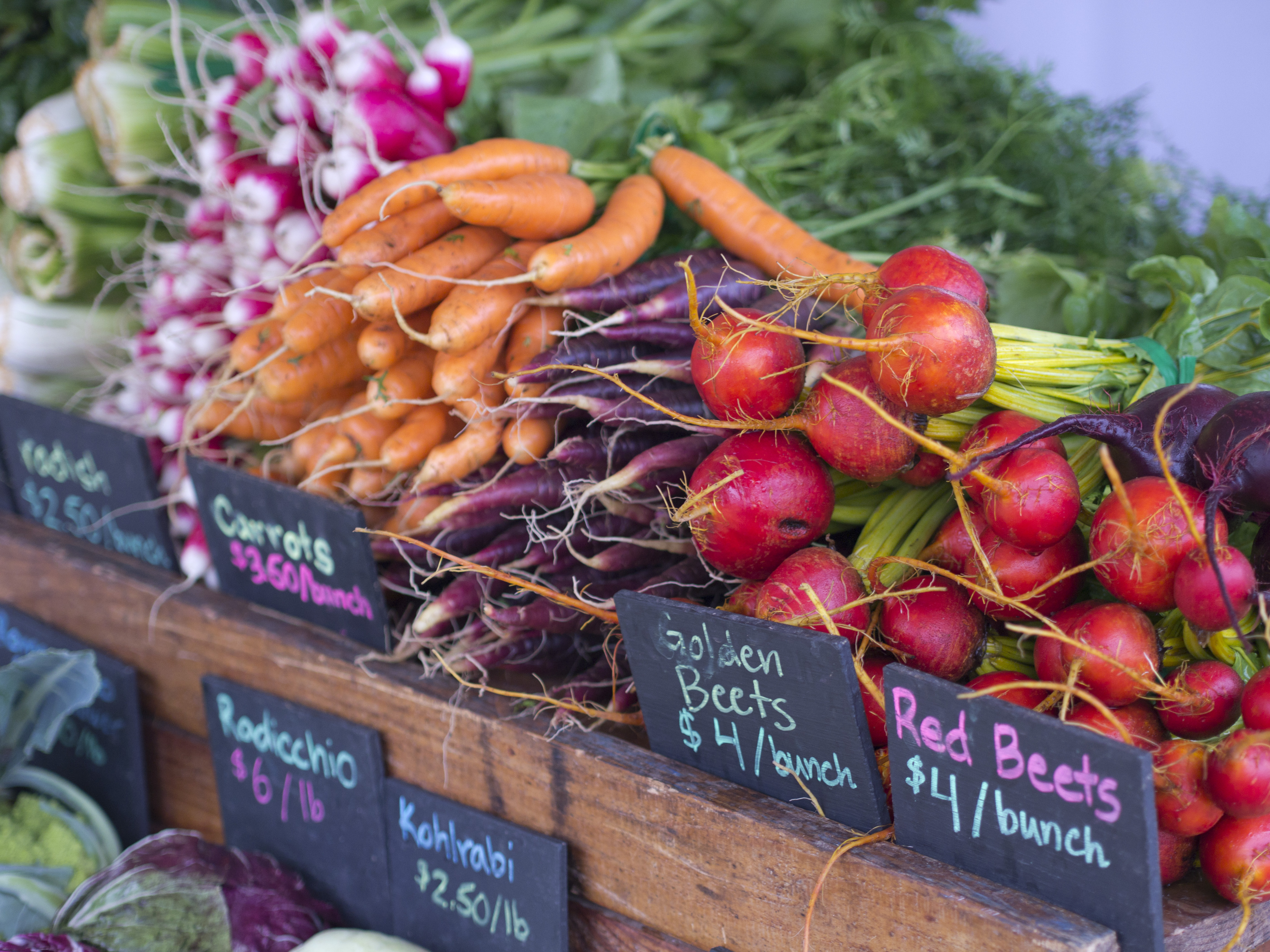
Food insecurity is a major issue on college campuses across Canada, and UBC is no exception—recent data shows that 37% of undergrad students at UBC Vancouver, and 42% at UBC Okanagan experience some degree of food insecurity.
In order to address this issue at the height of the pandemic, grassroots efforts of volunteers, the Faculty of Education, Origin Church, Acadia Park community, AMS Food Bank, Student Housing and Community Services, and UBC Wellbeing assisted the community in supporting over 500 students and families with weekly food and baby supplies hampers.
Increasing Student Access to Affordable Food: UBC Meal Share Pilot Program
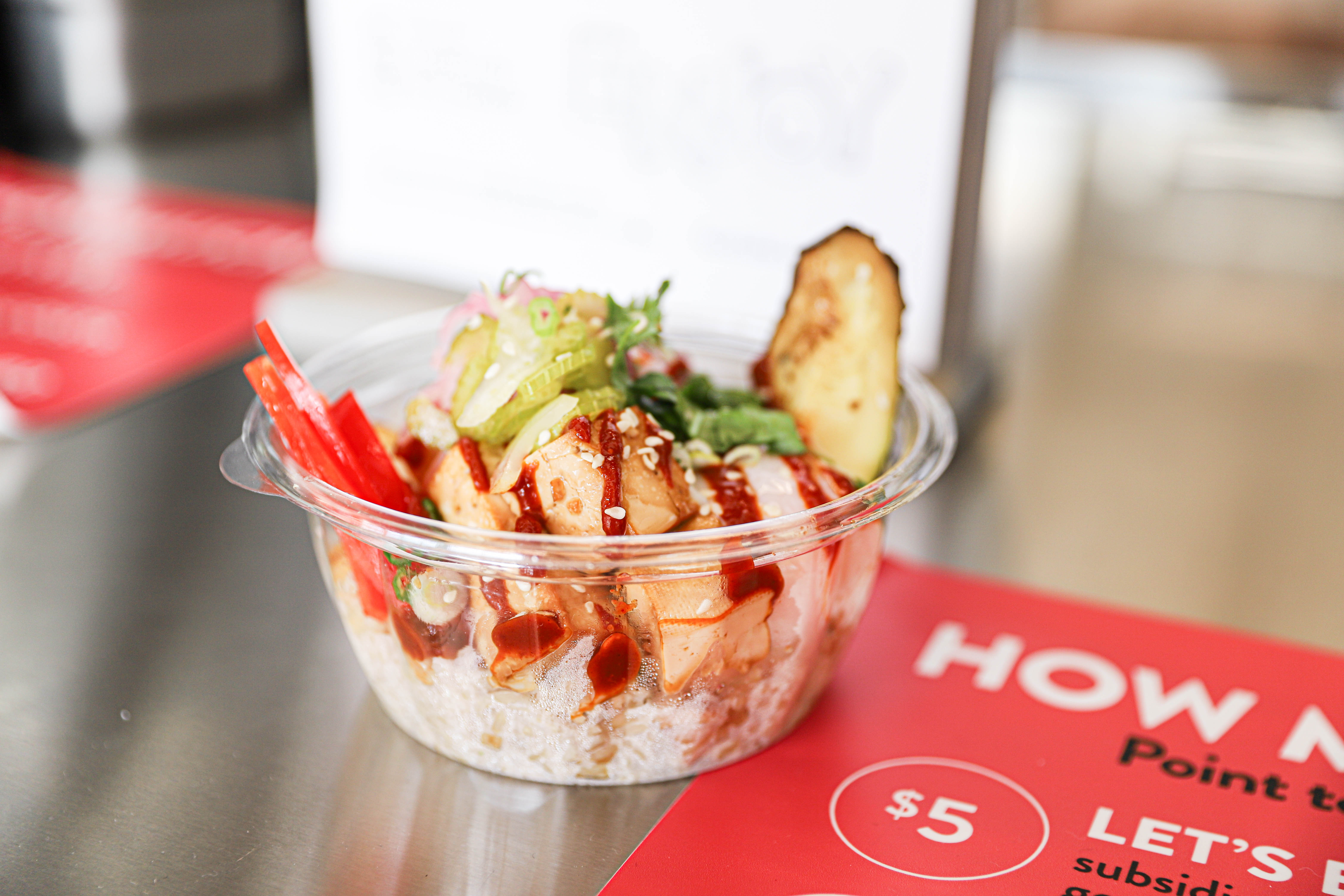
The Food Security Initiative (FSI) launched a UBC Meal Share pilot with the support of donors to the Student Wellbeing Fund to ensure students have access to food.
At UBC Vancouver, 96 students were provided funds to purchase food via their UBC card, ensuring a low barrier and discrete access to minimize food insecurity. Next year, the program will be launched at both main campuses to support more students.
Creating a Vision for a Community Food Hub at UBCO
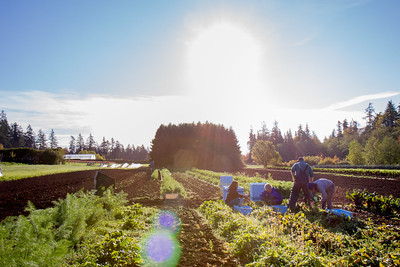
Campus Health partnered with a Sustainability Scholar to conduct a campus community consultation, creating a vision for the Community Food Hub at the Okanagan Campus.
Over 100 key stakeholders and students held 23 consultation sessions students, developing a vision with VOICE 5 food security research approaches.
The consultation prioritized inclusion, equity, accessibility, reconciliation, and sustainability, identifying the need for both an indoor and outdoor space to support skill-building, advocacy, and community-building around food. Next steps to improve the program have been identified to increase collaborations across campus to support the Food Hub.
Empowering Students, Faculty & Staff with Nutrition Resources: NourishU
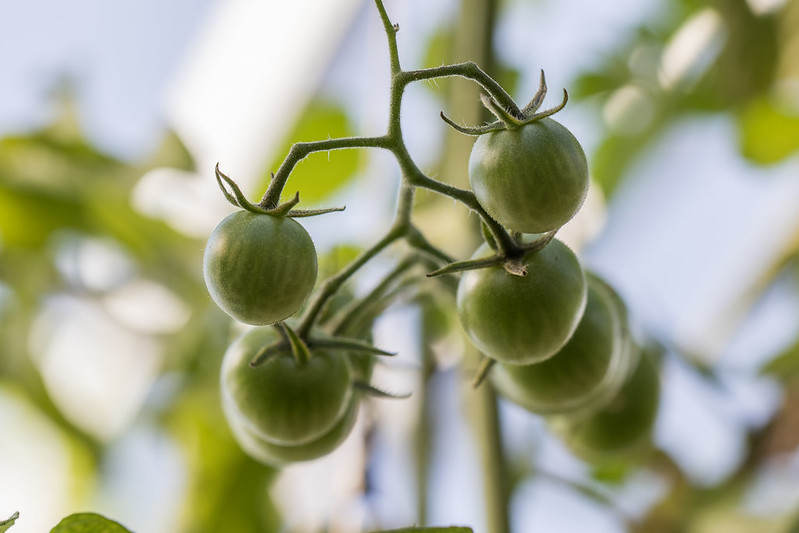
The Nutrition Month Program, funded by UBC Wellbeing, successfully began this year with 545 participants. The NourishU journey provided daily education and reflection opportunities focus on intuitive eating and body image.
More than 80% of survey respondents agreed or strongly agreed that NourishU improved their relationship with food, respect for their body, acceptance of all body shapes and sizes, motivation to participate in joyful movement, and ability to challenge the social pressure to conform to the “thin ideal.”
Promoting Food Security in Higher Education
To increase opportunities for the campus community to explore local food environments and build community-wide food security, in March 2021 over 700 students, staff, faculty, and community members attended 12 virtual events as part of the “Promoting Food Security in Higher Education” conference series organized in partnership with Meal Exchange, University of Guelph, McMaster University, University of Ottawa.
The conference sessions emphasized the intersectional and interconnectedness of affordability, sustainability, equity and social justice and Indigenous food sovereignty. Research was also conducted as part of the conference, with one project focusing on the co-development of principles for promoting food security in higher education that all institutions can strive towards.
As a follow-up to the conference, a series of meetings were held over the summer to establish food security in higher education networks to advance food security and its intersectional areas across Canada in collaboration with other institutions.
Promoting Healthy Beverages on Campus
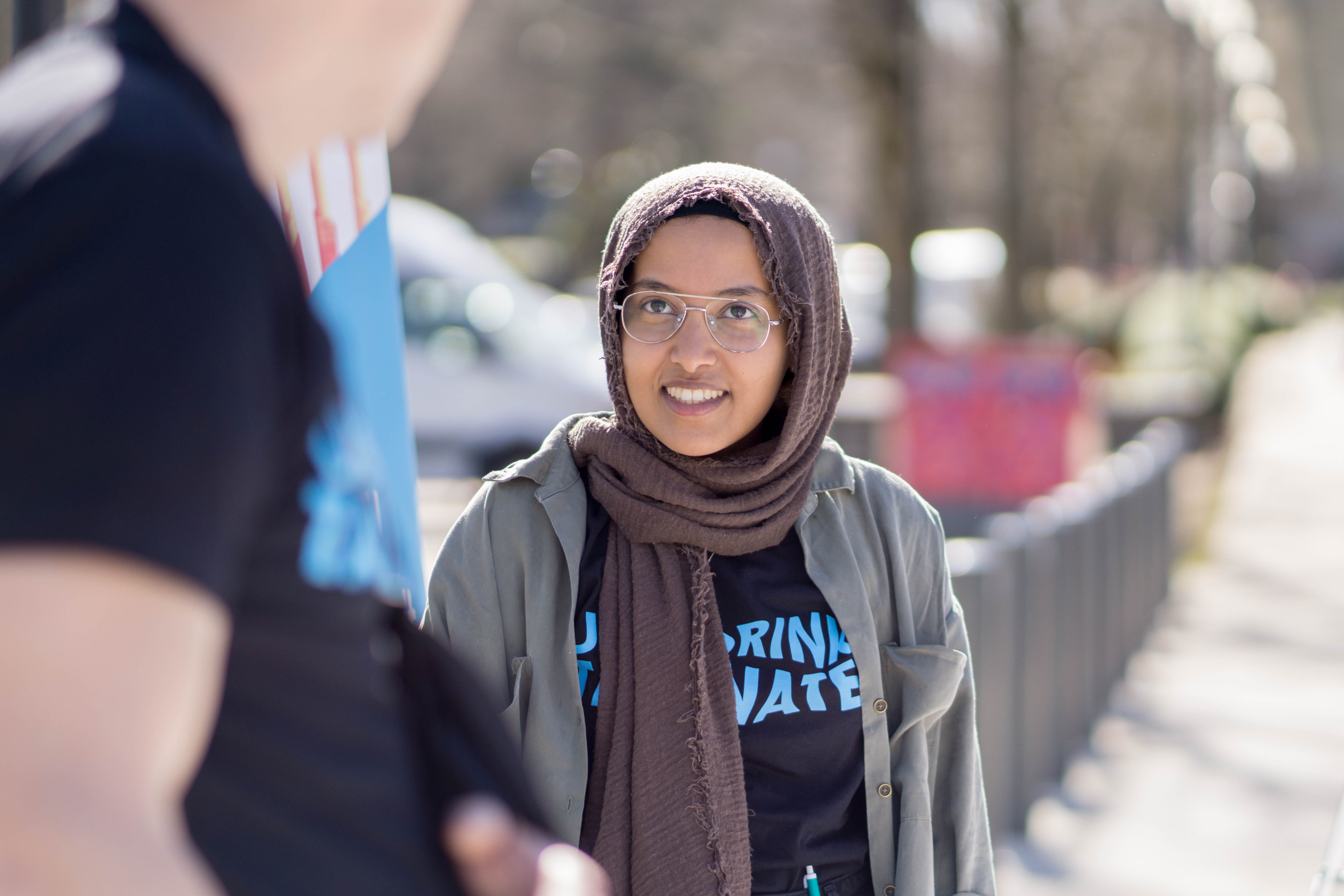
This year, various collaborators from across UBC made progress on the Healthy Beverage Initiative (HBI), with numerous initiatives completed on both campuses.
A UBC Okanagan dining location (Sunshine) was transitioned to be 100% HBI compliant. The commitment to transition all of our vending machines at UBC Vancouver to align with the HBI, has been fulfilled as well.
In addition, the working group published a paper on the Healthy Beverage Initiative in the Journal of Public Health Nutrition and presented findings at the Centre for Science in the Public Interest’s Sugary Beverages Summit.
Read "Changing the beverage landscape on a large post-secondary campus"
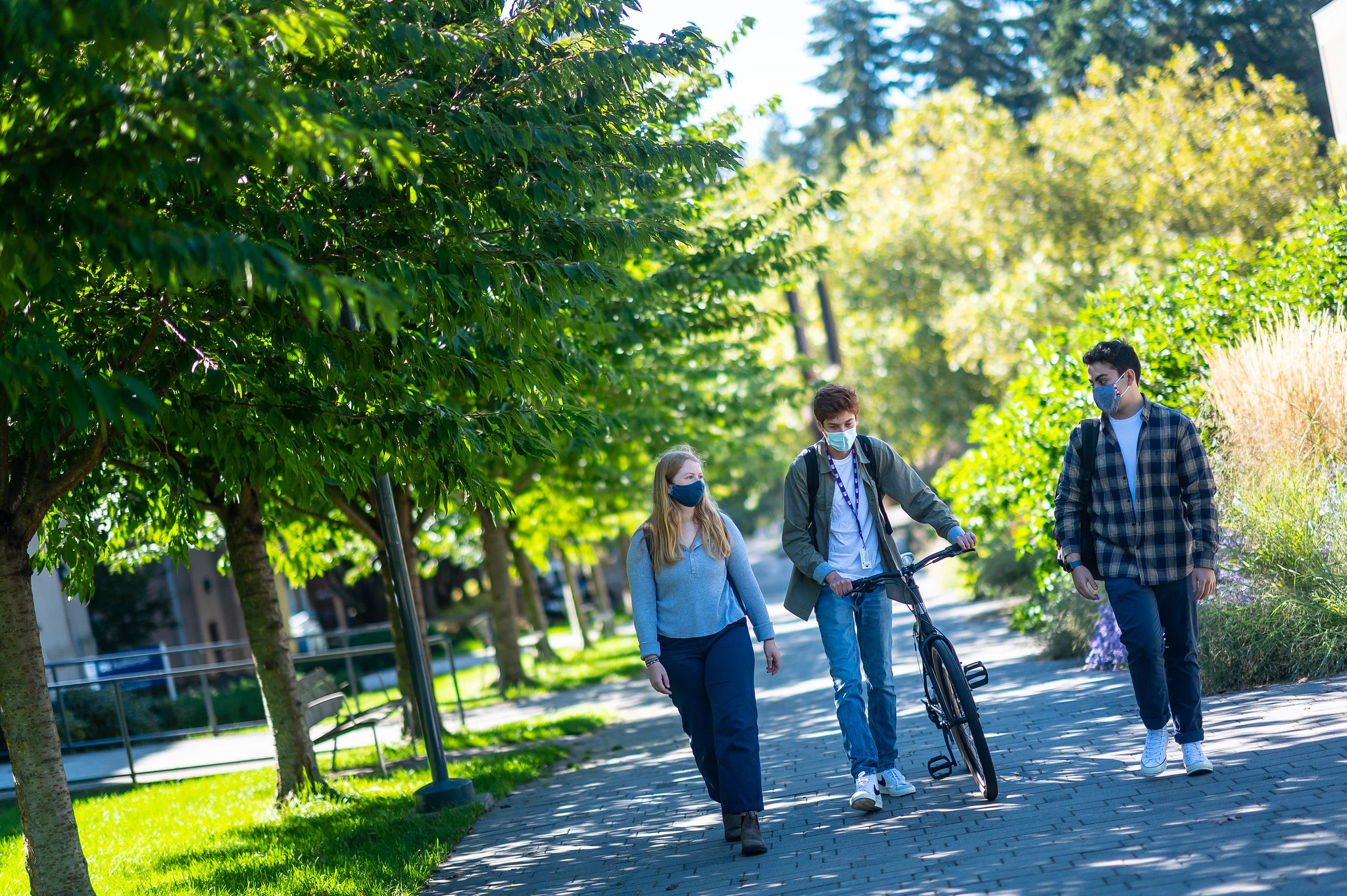
Built & Natural Environments
![]()
Active Transportation
At least 66% of all trips to and from UBC made by walking, cycling or transit by 2040
UBCO target in development.
Metrics
Measure
% of trips made by walking, cycling or transit
| Campus | Data | Change from baseline (B) |
| Vancouver | 31% | -25% (decline) |
| Campus | Data | Change from baseline (B) |
| Okanagan | 43% | B |
![]()
Complete Communities
Increase opportunities for people to learn, work, play, and live on our campuses through an increase in the number of student beds to 17,300 and an increase in child care spaces to 1,200 by 2040
Metrics
Measure
# of student beds
| Campus | Data | Change from baseline (B) |
| Vancouver | 12,425 | 0 |
| Campus | Data | Change from baseline (B) |
| Okanagan | 1,900 | +220 (improvement) |
Measure
# of child care spaces
| Campus | Data | Change from baseline (B) |
| Vancouver | 1,000 | +49 (improvement) |
| Campus | Data | Change from baseline (B) |
| Okanagan *Childcare facilities are not run by UBC on this campus | N/A | N/A |
Built & Natural Environment Highlights
Building a Vision for Sustainable Transportation at UBCO
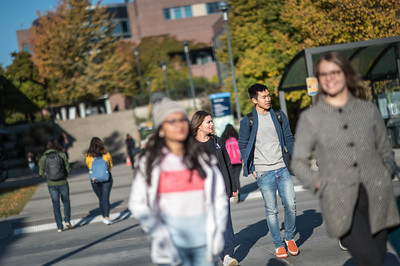
Campus + Community Planning started the engagement process for the UBC Okanagan Transportation Plan with a virtual public open house and stakeholder workshops. This 18-month planning process will create a long-term vision for transportation at UBC Okanagan, including the establishment of transportation-related targets and objectives, and strategies to achieve them. This plan for sustainable and active transportation is being developed to support future campus growth, community wellbeing, and climate action.
Enhancing Supports for Families on Campus: Wesbrook YMCA Child Care Centre Opens
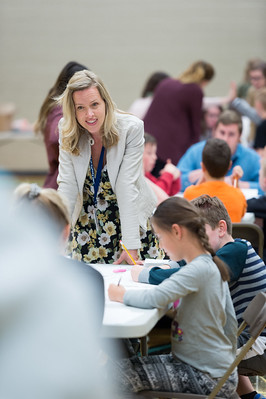
The new Wesbrook YMCA Child Care Centre opened in 2020, operated as a partnership between the YMCA, UNA, and UBC. Designed by Francl Architects and Attentus Landscape Architecture, the Centre offers 49 child care spaces with the internal space divided into three separate areas to accommodate different age groups - infants, under 18 months, toddlers, and 3 to 5 years.
The Wesbrook YMCA Child Care Centre is the greenest child care centre to open at UBC. It is one of the first buildings on campus to address the UBC Green Building Action Plan strategies in energy, water, materials and resources, biodiversity, health and wellbeing, quality, climate adaption, and place and experience. The Centre is built to encourage children to move, explore and enjoy the space, inside and out. Skylights are incorporated throughout the building to provide natural light and the outdoor play areas are integrated within the natural landscape.
In addition, renovations to Berwick Child Development Centre were completed to expand the life of the building, preserving the existing 96 spaces for another 15-20 years.
Enhancing MacInnes Field

MacInnes Field Public Realm upgrades were completed in 2020, providing 57,000 square feet of turf field for recreation and athletics, located behind the AMS Nest for the community to enjoy.
Along the eastern perimeter of the field, ten carvings featuring traditional First Nations designs of eagles, thunderbirds, and salmon, designed by Musqueum artist Brent Sparrow, have been cast in bronze and installed. These carvings help establish community ties and further acknowledge that we are gathered on the traditional, ancestral, and unceded territory of the Musqueam people.
Expanding UBC Vancouver Child Care Services
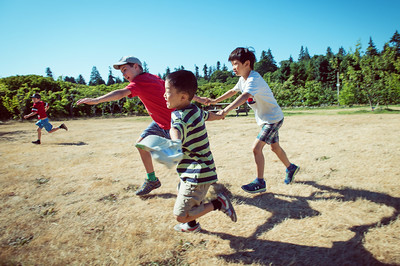
UBC is committed to expanding childcare to ensure child care services are available on campus for families who live, study and work on campus. The Child Care Expansion Plan (CCEP) provides a framework to deliver on UBC’s childcare policy commitments, addressing long-range institutional needs and neighbourhood childcare demands on the Vancouver Point Grey Campus.
As of January 2021, the available inventory increased to 763 childcare spaces and 237 out-of-school care spaces. The CCEP aims to create an inventory of approximately 1,200 spaces by 2041, with a focus on delivering more childcare spaces for children under 3 years of age.
Continuing Advocacy for Rapid Transit to UBC
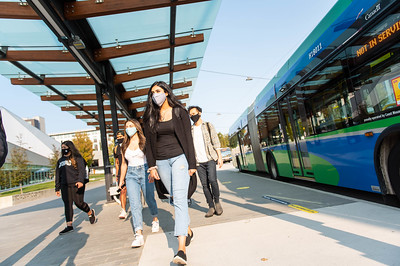
UBC continues to work with its partners, Musqueum, Squamish, and Tsleil-Watuth First Nations, and the City of Vancouver to jointly advocate for rapid transit to UBC. The aim is to ensure the SkyTrain project is built as a seamless continuation of the Broadway Subway Project, which is now under construction and will terminate at Arbutus Street. If we are successful, we could see a station at UBC by 2030.
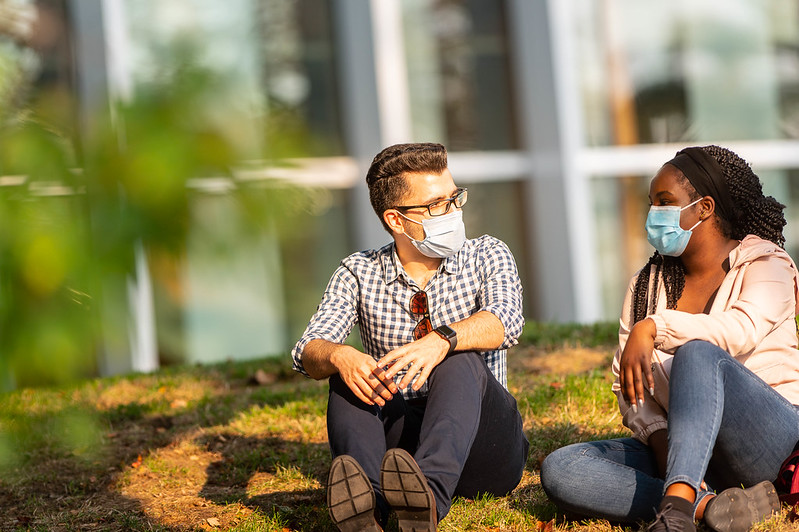
Social Connection
![]()
Feel Part of a Community
10% increase in UBC community members feeling part of a community by 2025.
Metrics
Measure
I have a group, community, or social circle at school (my workplace) where I feel I belong (feel at home, known connected to, support in my identity)*
UBC Vancouver
| Population | Data | Change from baseline (B) |
| Undergraduate Students | 42% | -15% (decline) |
| Graduate Students | 44% | -15% (decline) |
| Staff and Faculty combined | 54% | B |
| Staff | 55% | B |
| Faculty | 51% | B |
UBC Okanagan
| Population | Data | Change from baseline (B) |
| Undergraduate Students | 46% | -8% (decline) |
| Graduate Students | 47% | -15% (decline) |
| Staff and Faculty combined | 53% | B |
| Staff | 57% | B |
| Faculty | 39% | B |
Measure
% First-year students that visit Collegia (Vancouver only) at least once a week
| Campus | Data | Change from baseline (B) |
| Vancouver | 33% | B (No 2021 data due to COVID) |
Measure
I feel that I am part of a community at UBC*
UBC Vancouver
| Population | Data | Change from baseline (B) |
| Staff and Faculty combined | 70% | B |
| Staff | 63% | B |
| Faculty | 72% | B |
UBC Okanagan
| Population | Data | Change from baseline (B) |
| Staff and Faculty combined | 67% | B |
| Staff | 52% | B |
| Faculty | 75% | B |
*% who strongly agree or agree
![]()
Inclusive Environment
10% increase in UBC community members reporting that their beliefs, identity and experiences are valued by 2025.
Metrics
Measure
At my institution, I am respected regardless of my personal characteristics, identity or background (e.g., gender, ethnicity, international status, disability, etc.).*
UBC Vancouver
| Population | Data | Change from baseline (B) |
| Undergraduate Students | 71% | B |
| Graduate Students | 68% | B |
| Staff and Faculty combined | 67% | B |
| Staff | 69% | B |
| Faculty | 57% | B |
UBC Okanagan
| Population | Data | Change from baseline (B) |
| Undergraduate Students | 79% | B |
| Graduate Students | 68% | B |
| Staff and Faculty combined | 67% | B |
| Staff | 69% | B |
| Faculty | 56% | B |
Measure
My diversity is valued in the workplace*
UBC Vancouver
| Population | Data | Change from baseline (B) |
| Staff and Faculty combined | 74% | B |
| Staff | 76% | B |
| Faculty | 67% | B |
UBC Okanagan
| Population | Data | Change from baseline (B) |
| Staff and Faculty combined | 68% | B |
| Staff | 75% | B |
| Faculty | 53% | B |
Measure
People treat each other with respect and consideration in my workplace*
UBC Vancouver
| Population | Data | Change from baseline (B) |
| Staff and Faculty combined | 77% | B |
| Staff | 78% | B |
| Faculty | 73% | B |
UBC Okanagan
| Population | Data | Change from baseline (B) |
| Staff and Faculty combined | 69% | B |
| Staff | 75% | B |
| Faculty | 58% | B |
*% who strongly agree or agree
Social Connection Highlights
Launching the Indigenous Strategic Plan & Implementation Toolkit

The UBC 2020 Indigenous Strategic Plan (ISP) was formally launched on September 14, 2020, with the support of the UBC community, to provide a framework for reconciliation in a post-secondary context. To help the implementation of indigenous rights as a UBC community across both campuses, the Office of Indigenous Strategic Initiatives has developed an ISP Implementation Toolkit units can use to help situate themselves in relation to Indigenous engagement and align their work with the ISP.
A specific focus is being placed on the ISP Self-Assessment Tool, which encourages units to take the time to slow down and reflect on where they are currently situated in relation to the ISP and the work of decolonization.
Additionally, important tools part of the toolkit, include the Intent to Action Tool to establish how the goals of the ISP can coincide with the relevant unit and department goals.
The toolkit is continuously being modified and improved, so be sure to check it regularly to stay up to date.
Building a Community of Care
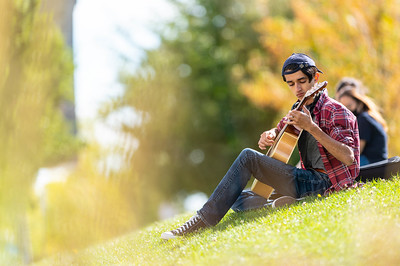
While the pandemic brought many challenges that limited the ability to gather in person, we were inspired by the compassion, connection, and creativity demonstrated by the UBC community over the past year and the ways in which they have supported one another by sharing their skills and talents through community programming and initiatives.
A special “Community of Care” grant program, launched by the Campus + Community Planning Programming team provided funds to projects that shared skills online, provided care packages to vulnerable community members and other ways to foster social connections while socially distanced. Community members rose to the challenge with great projects including sewing and distributing free homemade face masks, building a rainbow picnic table for community members to enjoy, a social-justice-focused book club, a postal art project that connected youth in campus neighbourhoods together as pen pals, and more.
Implementing Equity & Inclusion Tools
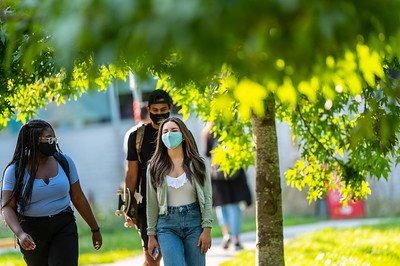
In 2020, the Health Promotion & Education unit (HPE) embarked on a review of their programming and services using the Equity & Inclusion Office’s Inclusion Self-Assessment Tool (ISAT). Professional staff, student staff, and student volunteers contributed their ideas and feedback across four sessions that took place in fall 2020 and winter 2021. As a result of this process, unit-level strengths, areas of improvement and recommended actions were identified in respect to HPE’s work in advancing equity, diversity, and inclusion (EDI).
Health Equity has been identified as a key priority for HPE as the unit undergoes its planning for the 2021-22 academic cycle. This priority aligns with the University’s strategic priorities and strategies including anti-racism, the Indigenous Student Plan, the Inclusion Action Plan, and the Wellbeing Strategic Framework.
As one of HPE’s many initiatives underway that centers on EDI and the student experience, the ISAT was identified as a tool that could facilitate conversations within the unit to better understand our work in advancing EDI and where there are opportunities for growth and development. Some key recommendations include reviewing recruitment and hiring of student staff and volunteers, consistent training in EDI, and program offerings that support equity deserving groups.
Strengthening Connections through Indigenous Ways of Knowing
An Indigenous pine needle basket weaving workshop provided the Indigenous Studies in Kinesiology program the opportunity to gather virtually for a traditional workshop, enhancing team and workplace connections. Faculty, staff, and students connected with traditional Indigenous ways of knowing, worked towards new problem-solving skills and strengthened connections to holistic health and wellness.
The initiative also supported the teachings of traditional activities from a local community in which their program is situated. As adaptations were essential due to the COVID-19 pandemic, the initiative was held virtually and helped their team discover vital strategies to combat stress, as well as acknowledge and appreciate sacred traditional practices and cultural teachings.
Student Engagement: Conversation Cafes

As a result of the COVID-19 pandemic, Health Promotion and Education (HPE) shifted programs, support and service offerings online. Now more than ever, health equity is a priority that guides their work. Through an equity, diversity and inclusion lens the HPE team endeavoured to hear more diverse experiences and perspectives of mental health to help shape ongoing student health and wellbeing support.
In planning for the upcoming 2021-22 academic year, we invited diverse student groups on campus to connect with professional staff in groups and one on one. Groups engaged included students who identify as IBPOC/BIPOC, first-generation, LGBTQ2S, and international students. From conversations, HPE heard the need for greater representation amongst professional staff, more diverse offerings of mental health support that are distinct from traditional biomedical supports, safe spaces for students of equity deserving groups to connect and show up and be accepted as their authentic selves, and a need to be included in the conversation about student mental health.
Sharing “What Lights You Up?”
During an especially challenging year, UBC community members shared what brings them joy with artwork or animation that answered the prompt, “What Lights You Up?” Each design was accompanied by personal stories that ranged from reflections of coping in the pandemic to favourite childhood memories and first experiences at UBC, while some used their designs to provide uplifting messages to the community. The selected winners had their designs projected through a lighting system onto Raymond and Money Lee Square, creating some lovely evening animation.
Letting Kids Rule the Campus
Hundreds of families call UBC home, including many children who have seen disruptions to school and extracurricular activities due to the pandemic. Led by the Community Programming unit in Campus + Community Planning and the Arts and Culture District, 14 UBC departments—including the School of Music, Beaty Biodiversity Museum, and the Department of Astronomy & Physics — partnered on the annual Kids Takeover UBC celebration. The initiative moved the fun and learning to an interactive, online treehouse that provided free musical performances, family-friendly theatre, hands-on workshops and more. This two-day event welcomed families living both on and off-campus, to join in the fun.
UBC Wellbeing Annual Report 2020-21 Infographic
Full UBC Wellbeing Annual Report 2020-21 Infographic
Wellbeing Annual Report Data Collection
In developing the Wellbeing Strategic Framework, a number of stakeholders were consulted to determine targets and indicators. In this second year of reporting, we continue to develop baselines and the measures throughout are presented from data that is currently available. These measures are intended to give a snapshot of our campuses and only some track changes towards each target. We look forward to continuing our collaborative work around data collection and to working across units and departments to advance the targets.
The UBC Wellbeing Annual Report relies on data from a variety of sources, such as the Undergraduate Experience Survey, (for current undergraduate student data presented), the Workplace Experience Survey, and the Canadian Campus Wellbeing Survey (CCWS). Additionally, data is used from various partners, such as Student Housing and Community Services, Campus and Community Planning, and UBC HR.
This year, the CCWS was piloted for employees at UBC. The response rate was 12.8%. The conclusions contained within the report are descriptive of the responses received, not the full employee population and may not reflect actual employee behaviours. However, we encourage UBC stakeholders to consider the survey responses of these employees despite the low response rates.
The CCWS for students was deployed in March 2021. The response rate was 13.6%. The conclusions contained within the report are descriptive of the responses received, not the full student population and may not reflect actual student behaviours. UBC stakeholders are encouraged to consider the survey responses as guiding in partnership with other relevant student data.
To focus action, the Wellbeing Strategic Framework identified targets and indicators that support our understanding of impact and change. In an institution like UBC, complexity of population-based data cannot be underestimated. Aligning measures across populations and coordinating survey instruments remains a challenge demonstrated by data gaps as well as the current lack of baseline data and targets for some priority areas.
UBC Wellbeing is working with partners to address these challenges and align measures.
Working Together
These are just a few of the many examples of policies, programs, plans and initiatives that UBC departments, units, and community members have undertaken over the past year to activate the Wellbeing Strategic Framework and help UBC towards our vision of becoming a health and wellbeing promoting institution.
So how will you embed wellbeing into your workplace, learning environment, or organization? And how can we help?
We all have a hand in shaping campus environments that support health, wellbeing, and sustainability. By championing wellbeing, together we can build stronger, healthier, and more inclusive communities at UBC and beyond.

